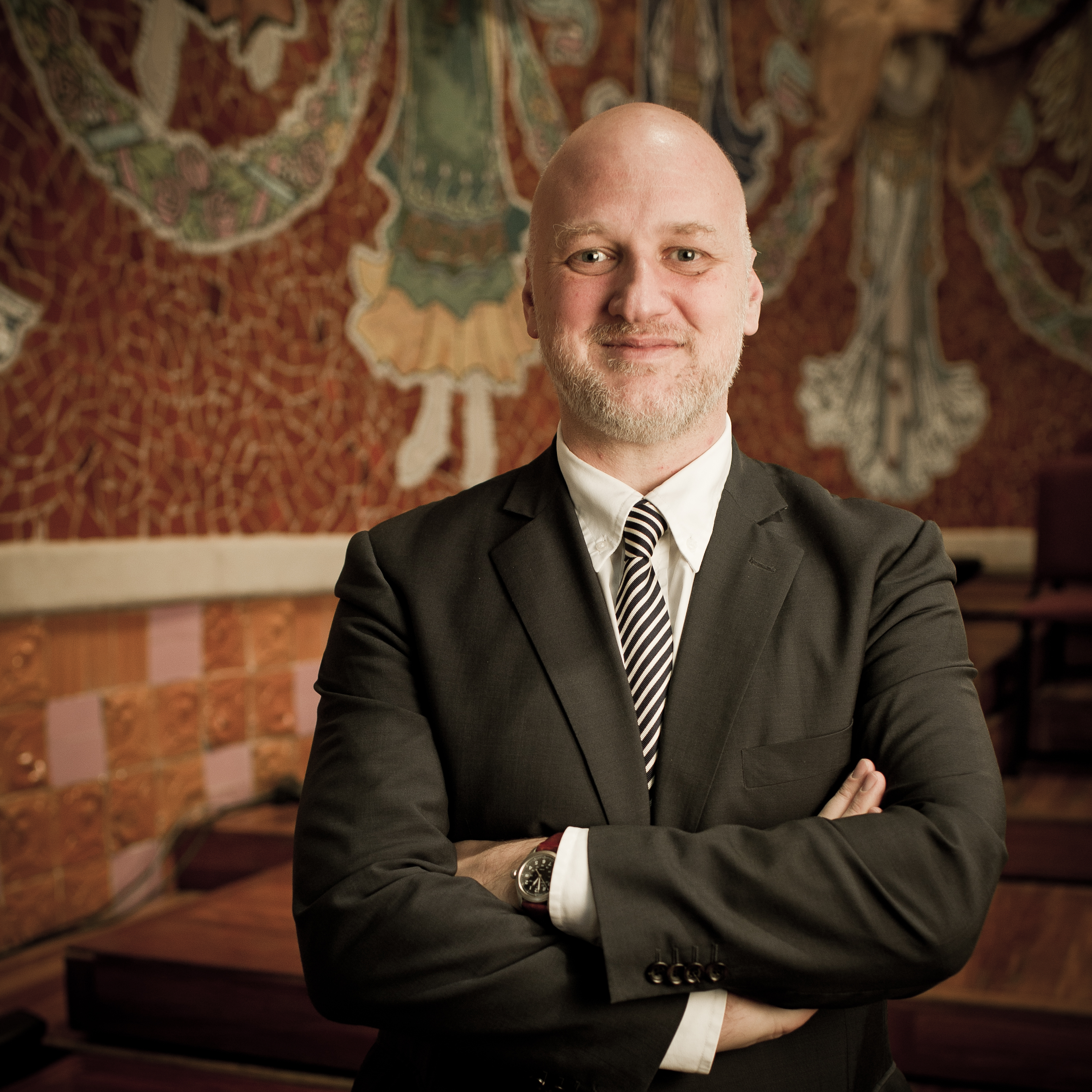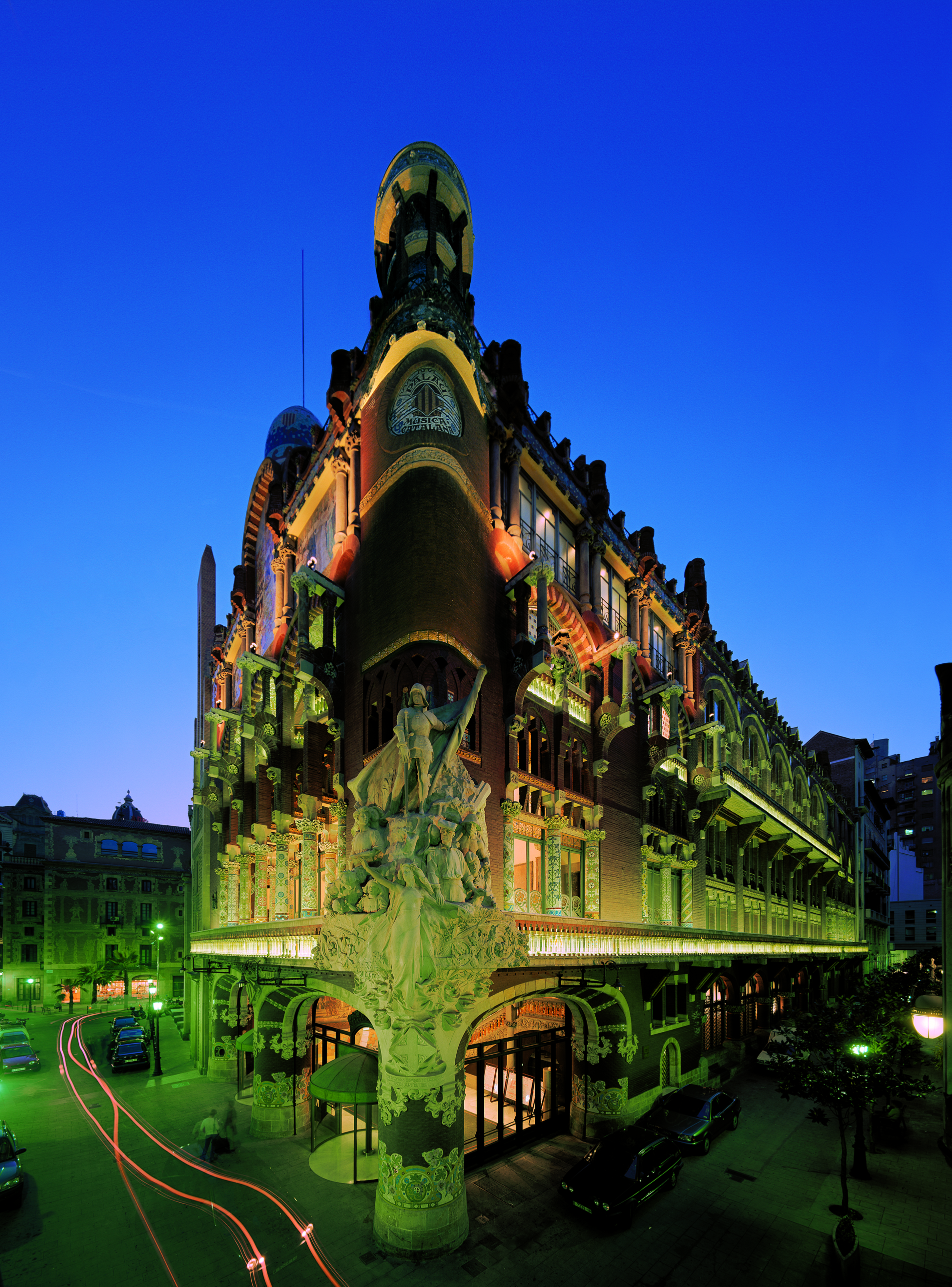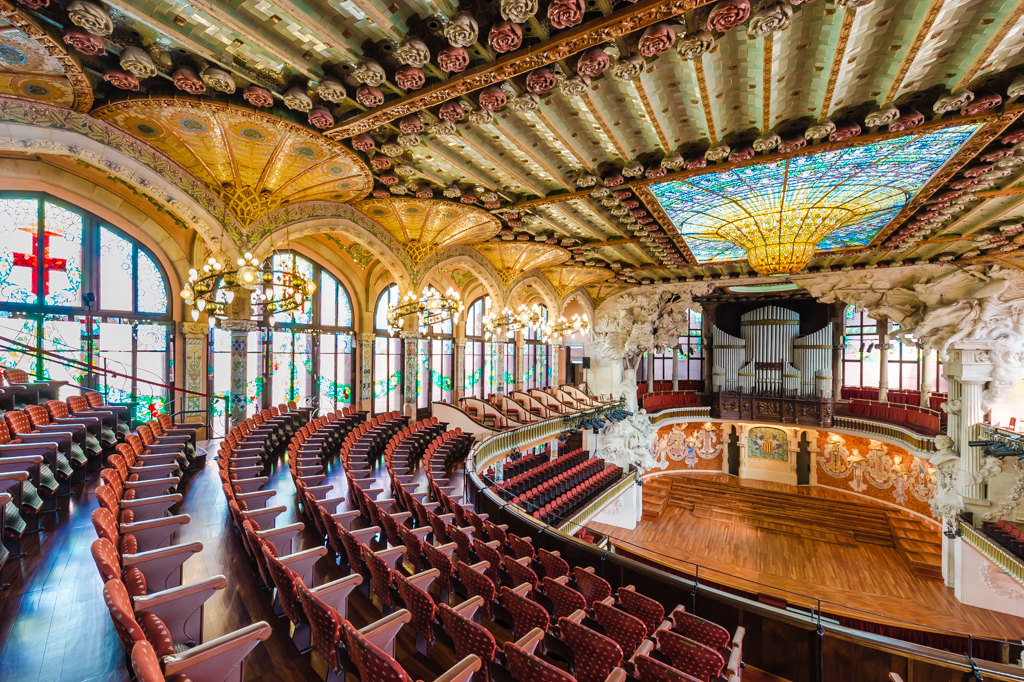Meet Joan Oller, director of the Palau de la Música
Tête-a-Tête with Joan Oller
By Verónica Castro Salamanca
5 Dec. 2014
After heading the Auditory for 10 years, Joan Oller took up the reins of the conglomerate Orfeó-Palau de la Música Catalana back in 2011. He talked to Divento about the Palau, his love for music and his favourite moments, past and future.

Joan Oller’s love for music dates back to his childhood. “My father had an old magnetophone where I would listen to Beethoven’s symphonies repeatedly”, he remembers. “I also had a tape of The Little Prince by Saint-Exupéry, and the background music was Prelude to the Afternoon of a Faun. At that time I didn't know it was by Debussy, but I remember that the music seduced me, it caught my ear”.
Years later, Oller went on to study music at the prestigious Liceu Conservatory and, having graduated in Business Management and Philosophy, he pursued studies in Orchestral Management in New York. After working for the Auditori and presiding the Association of Professionals for Cultural Management in Catalonia, he was appointed general director of the prestigious Palau de la Música, one of the most beloved concert halls in Europe.
The Palau is hosted in a breathtaking modernist building by the catalan architect Lluís Domènech i Montaner, whose name is right up there with Gaudí or Puig i Cadafalch. The building was declared a UNESCO World Heritage Site in 1997. “Some people come for the architecture”, says Oller, though he points out it’s not the only reason: “Other people are attracted by the mix of architecture and music, and then there’s the third crowd of music lovers who come for specific concerts. And then there are others who travel to see a concert”, he specifies. The Palau is hoping to “boost” their numbers in the future, says Oller.
Photo: Ricard Pla y Pere Vivas
In 2013, guided tours to the building - the second biggest source of income for the Palau - topped 169,000 visits, with over 157,000 spectators coming to concerts programmed by the Orfeó-Palau Foundation. Currently, public funding represents 15% of its budget, but the Palau is striving towards balancing its books. “Revenue comes from ticket sales, guided tours, sponsorships and venue lettings”, says Oller, who admits that weathering the economic recession has been his greatest challenge to date.
The Palau’s programme combines internal productions (predominantly classical), with concerts and cycles of other music organised by external promoters. Oller remarks that this isn’t only due to a merely economic reason, but that it is “mostly a response to a philosophical principle: classical music is excellent, but so are other genres. If the format is compatible with a concert hall, there is no reason why it shouldn’t host a remarkable jazz or flamenco concert.”
When asked about the most memorable moments of the year, Oller mentions Sibelius’s Symphony No.2, which was interpreted by the Munich Symphonic Orchestra and conducted by Lorin Maazek. Oller describes it as “an unforgettable concert that will go down in history”. It was one of Maazel’s last performances before he passed away in July. Sir John Eliot Gardiner, who conducted the Monteverdi Choir on their 50th anniversary tour was also remarkable, as was the programme on nature, featuring Beethoven’s Pastoral and Stravinsky's The Rite of Spring conducted by Gustavo Dudamel. And - by the way - he will be back at the Palau in January 2015.
And his selection of concerts not to miss out in the new season? “All of them”, he answers without missing a beat, though he finally opts for Bach’s Mass in B Minor, coming to the Palau on the 11th December under the direction of Thomas Hengelbrock, which Oller states “is one of those moments one can’t miss”. In 2015, he recommends Paul Lewis and Mark Padmore’s interpretation of Schubert’s Die Schöne Müllerin. Both concerts will take place in the Palau’s Concert Hall, a striking architectural marvel one has to see at least once. And if it’s to enjoy a good concert, even better.
Photo: Matteo Vecchi
To top it all off, Oller shares with us some of his suggestions for all Diventonians travelling to Barcelona.
A Catalan composer
"Bernat Vivancos, one of our guest composers this year. He has great talent. He plays with the spiritual aspect of music. There will be a lot of music by Vivancos this year at the Palau, so it will be a good opportunity to discover his music".
Your favourite places to buy music
"Disco 100 in Escorial Street. It’s a miracle that it’s still open and selling classical music. Discos Castelló, though they have reduced their selection of classical music. Finally, FNAC and El Corte Inglés".
A music festival that takes place in Catalonia
"The Schubertiada in Vilabertrán, for its format, what is done and how it’s done. Also, the Peralada Festival, which continues to support opera, regardless of the difficulties and costs involved".
You favourite place in the neighborhood
"The Plaça del Rei. Its gothic style greatly contrasts with the colonial Plaça Reial. They represent two Barcelonas".
Your top 3 of highlighted monuments
"The Sagrada Familia. It still fascinates me every time I visit it. Also Santa Maria del Mar and the Ateneo Library, a great place to shoot a film, though it’s not open to the public".


